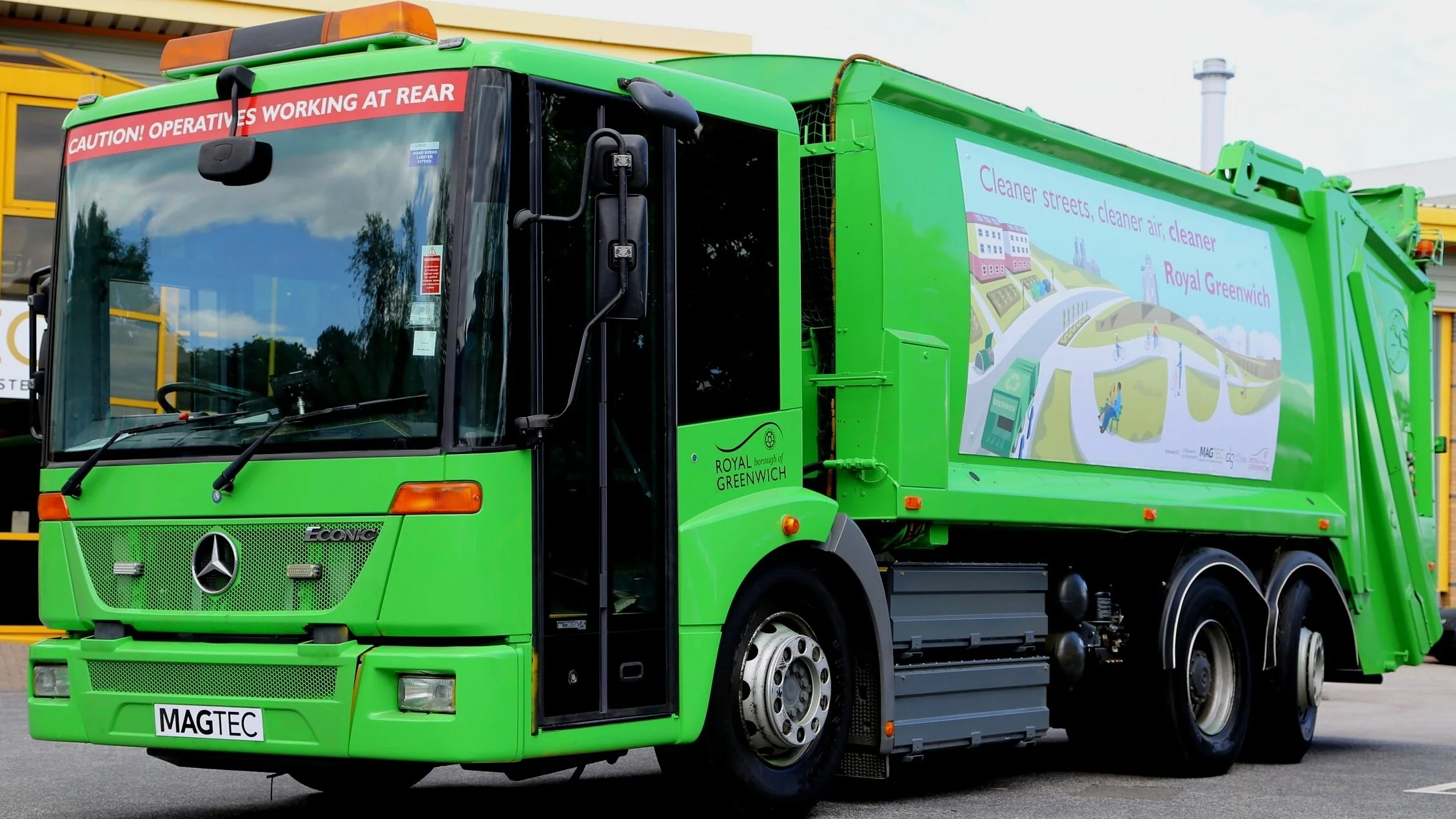Today, we’re excited to publish a new Social & Environmental Business Case Report for repowering fleets. This report helps local authorities and fleet providers take the most cost effective and sustainable approach when transitioning their fleets from diesel to electric. Unlike other similar and existing research, the costs and environmental emissions highlighted in this report are based on real-time data collected from the operation of the refuse vehicles, making this piece of research the first of its kind.
Are Cities Ready for a fleet-led EV revolution?
Could Bin Lorries Power Our Cities?
Earlier this week we looked at the work we’ve done as part of the eRCV project, to repower bin lorries. But what could this mean for our cities? Well the UK currently has between 12-14,000 refuse collection vehicles (RCVs), making daily rounds in the neighbourhoods they serve to collect the rubbish left outside the 23 million homes we live in. And apart from a handful of trial projects like eRCV, all these vehicles are running on diesel, contributing to pollution and CO2 emissions. But we think in the next phase of their evolution they could be part of a holistic solution against climate change.
How Waste Collection Can Be A Force for Environmental Change
Smart Cities & the Climate Crisis
Last year the UK government declared a climate emergency, announcing ambitious, legally-binding targets to reduce carbon emissions to net-zero by 2050. Since then, an awareness of the damage being done to the planet and the benefits of reducing our negative impact on the planet, have continued to become of high priority amongst all sections of society. We are witnessing the continued rise of school strikes, continually ambitious targets set by governments to transition to a low-carbon economy, and even the recent announcements by some of the corporate heavyweights to act on the climate crisis (Jeff Bezos’ $10bn climate fund, Microsoft’s pledge to become carbon negative by 2030 for example). It is now a priority to ensure our urban environment benefits people and the planet both now and in the future.




